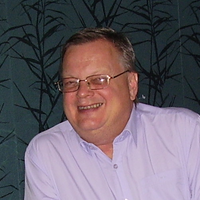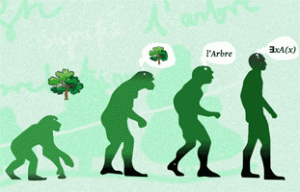[podstrona w aktualizacji]
Lectures in Cognitive Semiotics – II edycja
(kurs dla studentów II roku kognitywistyki UMCS)
organizowane przez:
- Seminarium Kognitywistyczne UMCS
- Instytut Filozofii UMCS
odbędą się w dn. 13-17.IV.2015 oraz 4-8.V.2015, s.4 (sala obrad Rady Wydziału Filozofii i Socjologii), budynek Starej Humanistyki, pl. Marii Curie-Skłodowskiej 4,
Wykłady (w języku angielskim) poprowadzą: prof. Göran Sonesson oraz prof. Jordan Zlatev, badacze z Centre for Cognitive Semiotics działającego przy Lunds Universitet (Szwecja). Wykłady odbywać się będą według następującego rozkładu:
- poniedziałek (13.IV, 4.V): 14:40-17:10
- wtorek (14.IV, 5.V): 16:10-18:40
- środa (15.IV, 6.V): 13:00-15:30
- czwartek (16.IV, 7.V): 13:00-15:30
- piątek (17.IV, 8.V): 10:30-13:00
Zachęcamy do uczestnictwa nie tylko studentów, ale również badaczy zainteresowanych problematyką na pograniczu kognitywistyki, semiotyki i językoznawstwa kognitywnego (opis kursu poniżej) – wstęp wolny (w miarę dostępnych miejsc). W razie pytań prosimy o kontakt z organizatorem: Piotr Konderak, kondorp[-at-]bacon.umcs.lublin.pl
Opis kursu Cognitive Semiotics:
The goal is to familiarize students with the emerging field of cognitive semiotics (CS), which combines theories, methods and findings from cognitive science, semiotics and linguistics in investigations of the multifaceted concept ofmeaning. The course has four themes: (1) introducing CS and providing a general overview of major concepts, methods and fields of inquiry; (2) human bio-cultural evolution, focusing on what allowed unique characteristics in the animal kingdom, cumulative cultural evolution, and eventually language, pictures, and other complex semiotic resources; (3) semiotic development, focusing on the parallel development of speech and gesture, as well as the mostly alternative development of pictorial meaning ; (4) Iconicity, manifested both in pictures, gestures, and other visual means of communication, which has been hotly debated in semiotics, and in phenomena of linguistic semantics such as “sound symbolism” that have remained controversial, and where the cognitive-semiotic approach can offer new insights.
Główne zagadnienia:
- Communication
- Signs and meaning
- Biological and cultural evolution
- Child development
- Language, gestures, pictures
- Cultural identity
- Intersubjectivity and collaboration
 Göran Sonesson jest profesorem semiotyki na Uniwerstecie w Lund oraz jednym z twórców i dyrektorem Centre for Cognitive Semiotics powołanym do życia w 2009 r. przy Uniwersytecie w Lund. Jest również inicjatorem semiotycznych studiów doktoranckich w Lund, które formalnie funkcjonują od 1998. Był pierwszym przewodniczącym The Swedish Society for Semiotic Studies (sffs) oraz prezydentem The Nordic Association for Semiotic Studies (NASS) 1992-2012, jak również Sekretarzem Generalnym The International Association for Visual Semiotics (IAVS/AISV) od 2001.
Göran Sonesson jest profesorem semiotyki na Uniwerstecie w Lund oraz jednym z twórców i dyrektorem Centre for Cognitive Semiotics powołanym do życia w 2009 r. przy Uniwersytecie w Lund. Jest również inicjatorem semiotycznych studiów doktoranckich w Lund, które formalnie funkcjonują od 1998. Był pierwszym przewodniczącym The Swedish Society for Semiotic Studies (sffs) oraz prezydentem The Nordic Association for Semiotic Studies (NASS) 1992-2012, jak również Sekretarzem Generalnym The International Association for Visual Semiotics (IAVS/AISV) od 2001.
Uzyskał doktoraty w zakresie: lingwistyki ogólnej (Uniwersytet w Lund) oraz semiotyki (École des Hautes Études en Sciences Sociales, Paryż). W latach 1974 – 1981 był członkiem Groupe de recherches sémio-linguistiques, kierowanej przez A.J. Greimasa, gdzie przewodniczył sekcji zajmującej się gestami.W latach 1981 i 1982 prowadził badania semiotyczne i lingwistyczne w Meksyku, w szczególności poświęcone językom i kulturze Majów. Wybrane publikacje: http://lu.academia.edu/GSonesson
 Jordan Zlatev prowadzi badania nad relacją pomiędzy językiem, myślą (w tym świadomością) a takimi systemami semiotycznymi (znakowymi), jak np.: gesty czy obrazy. W szczególności interesuje go perspektywa ewolucyjna i rozwojowa (fito- i ontogenetyczna). Jest jednym z liderów Centre for Cognitive Semiotics oraz twórcą nowopowstałej dyscypliny jaką jest semiotyka kognitywna.
Jordan Zlatev prowadzi badania nad relacją pomiędzy językiem, myślą (w tym świadomością) a takimi systemami semiotycznymi (znakowymi), jak np.: gesty czy obrazy. W szczególności interesuje go perspektywa ewolucyjna i rozwojowa (fito- i ontogenetyczna). Jest jednym z liderów Centre for Cognitive Semiotics oraz twórcą nowopowstałej dyscypliny jaką jest semiotyka kognitywna.
Prof. Zlatev pełnił funkcję prezydenta Scandinavian Association for Language and Cognition (SALC). Jest założycielem i członkiem zarządu International Association for Cognitive Semiotics (IACS). Członek zarządu International Cognitive Linguistics Association (ICLA).
kontakt: Piotr Konderak, kondorp[at]bacon.umcs.lublin.pl
<< Powrót do: Seminarium Kognitywistyczne

